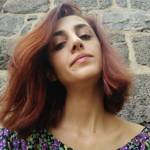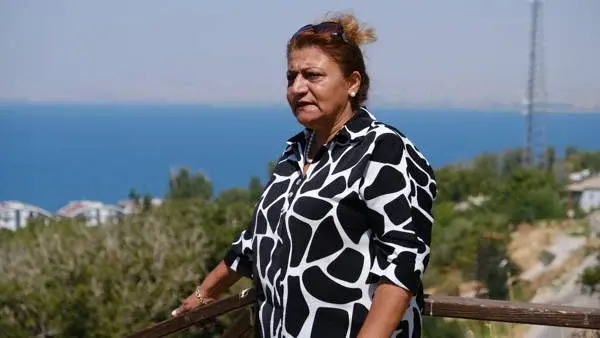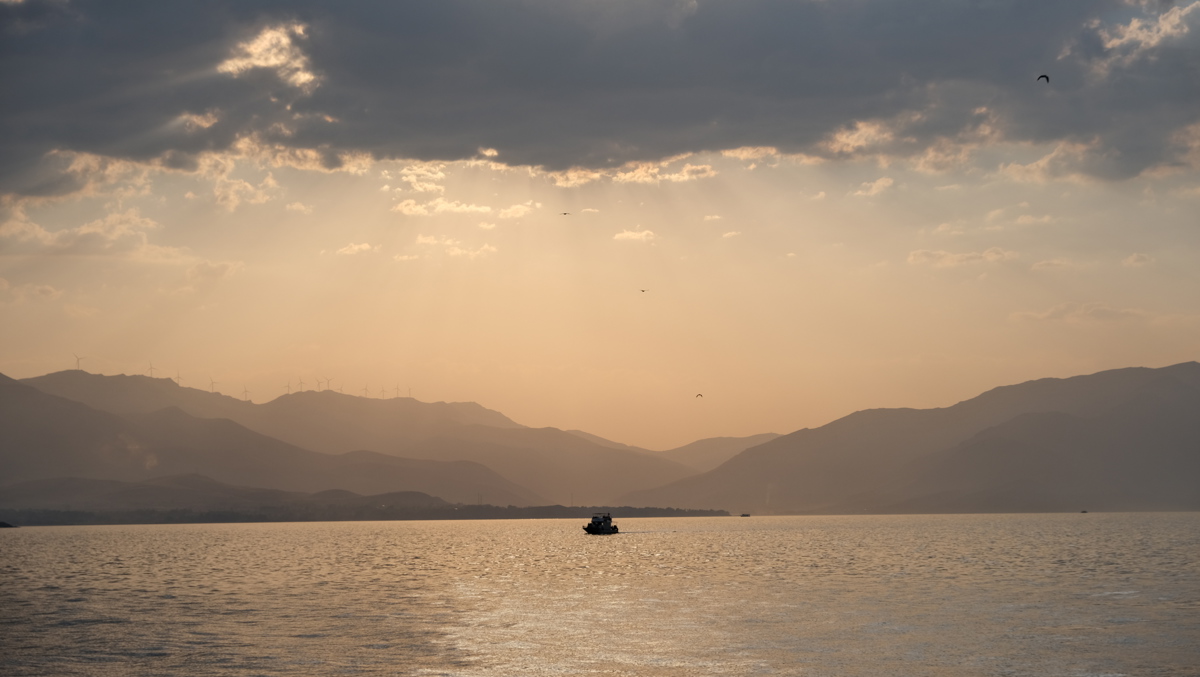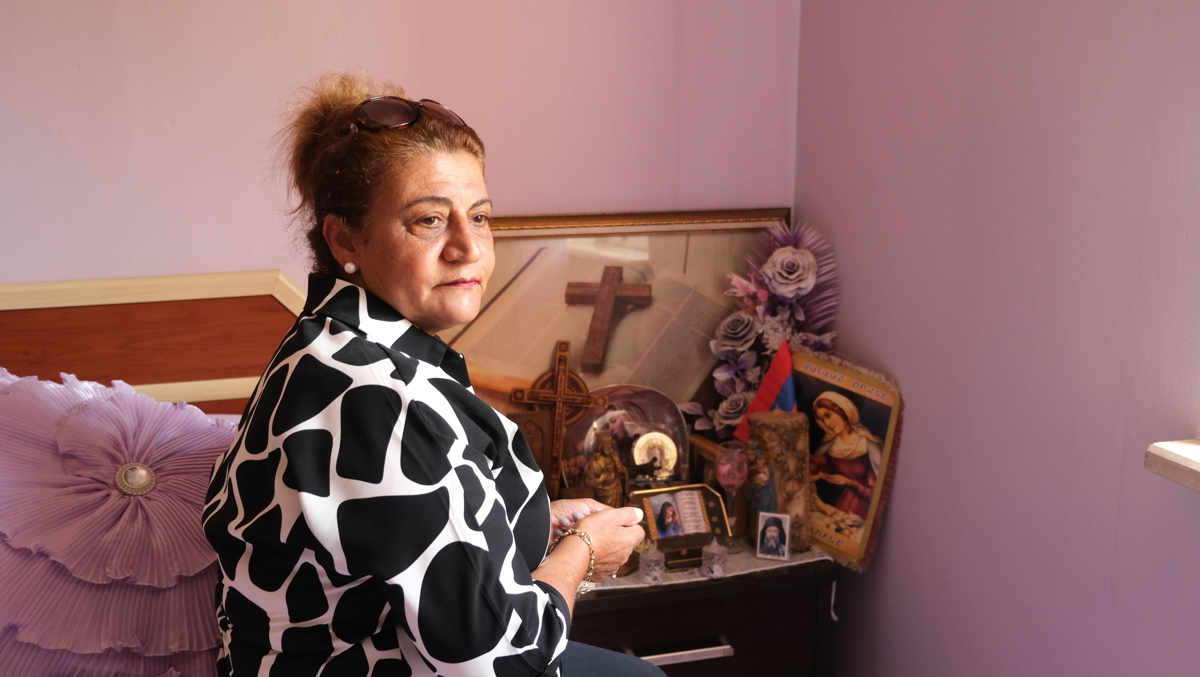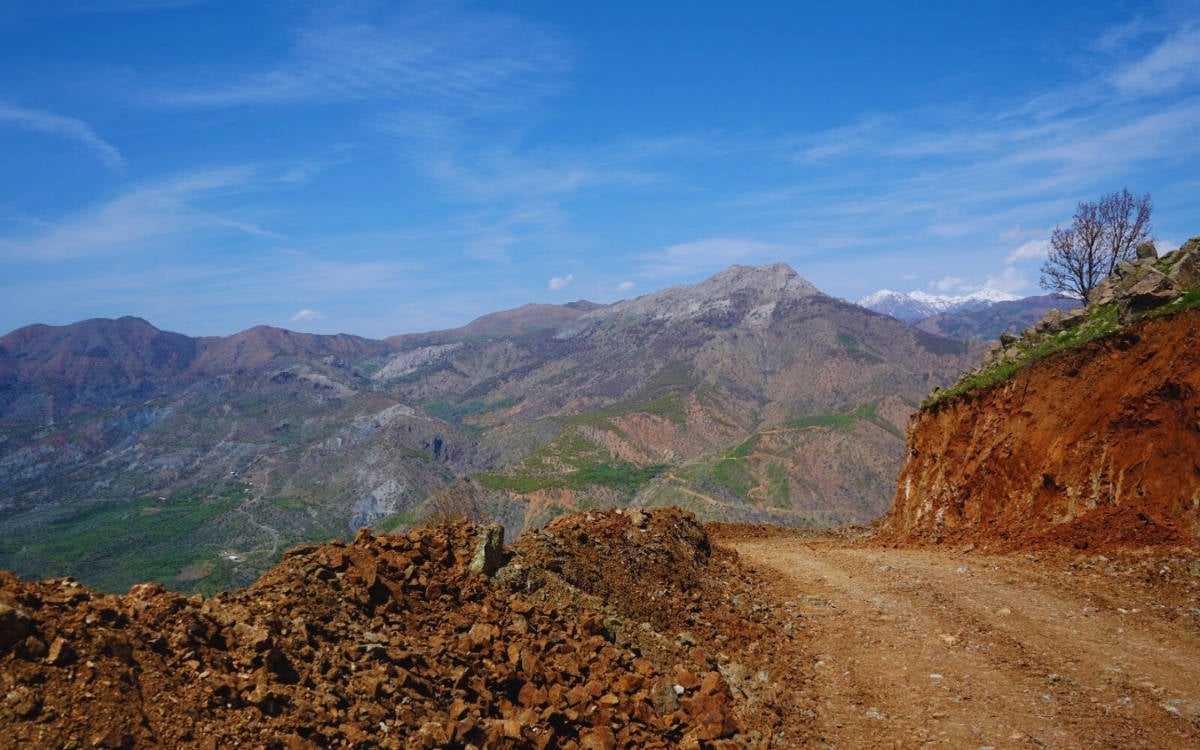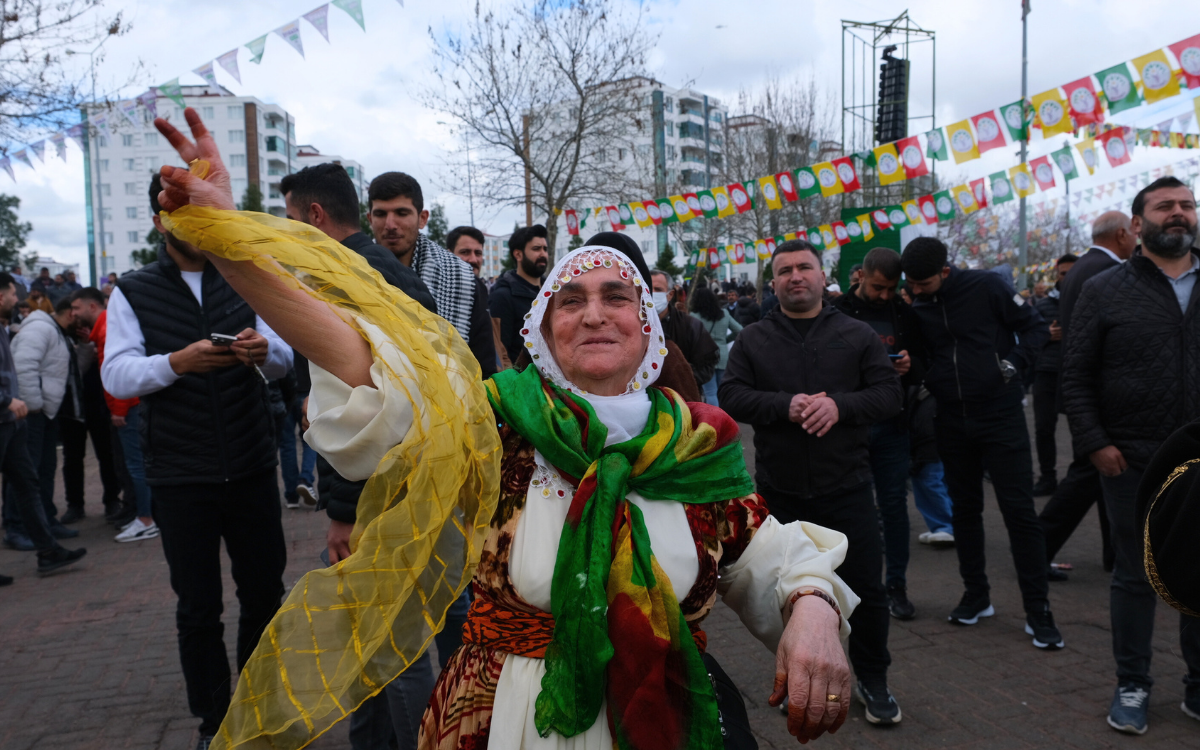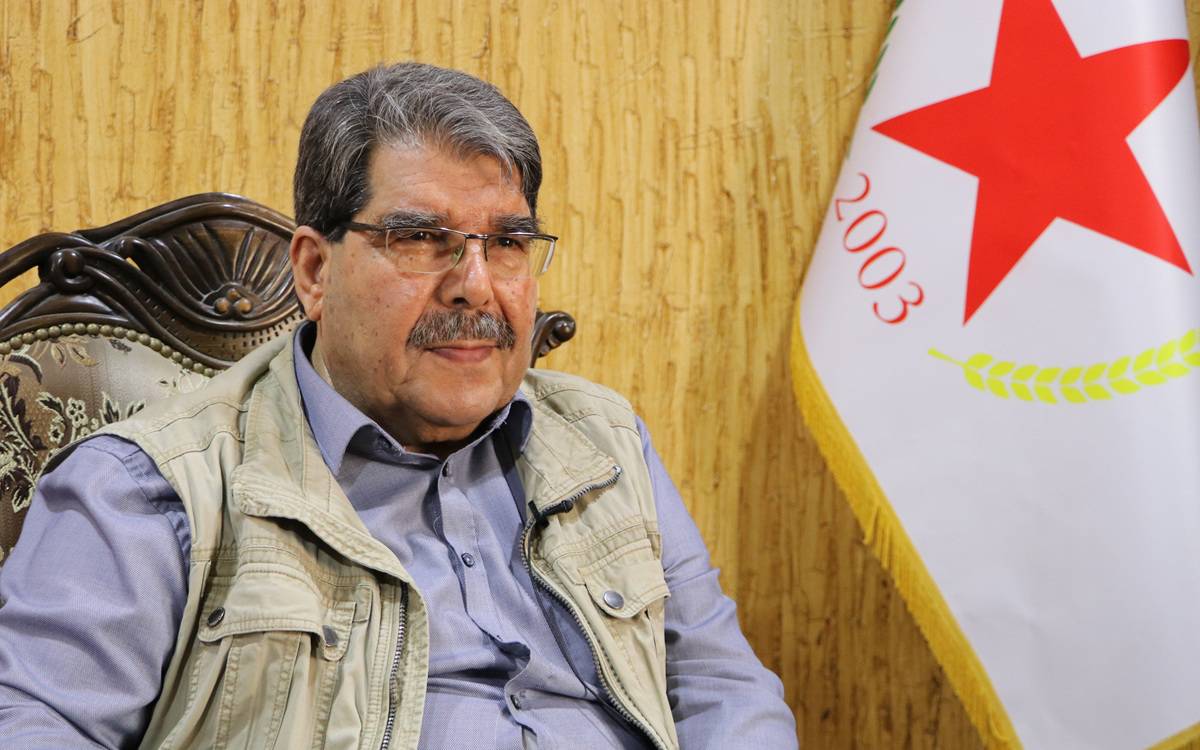Gayane Gevorgyan was the first Armenian to settle in Van, exactly a century after the 1915 Genocide. She has been living in the Edremit district since 2015.
Born in the village of Sisavank in Armenia, Gevorgyan first came to Van in 2008 to attend a wedding. She had only known Van from the stories her parents told her and was captivated by the beauty of the city, saying that her parents died longing for their homeland.
With the support of her husband, who is from Samsun, northeastern Turkey, Gevorgyan made the decision to settle in Van. Since then, she has seen it as her responsibility to protect the historical structures and graves left behind by her ancestors.
One of her greatest dreams is for the forgotten and neglected churches of Van to be restored and reopened. Gevorgyan has been a vocal advocate for the annual service held at the Akhtamar Church on the Akhtamar Island since 2010, calling for people to attend the 12th service this year.
'Go to the village, kiss the ground'
Gevorgyan, who was born and raised in Armenia, moved to İstanbul in 2000 for work, where she worked in various jobs. It was during this time that she met her husband and got married. In 2008, she visited Van’s Gevaş district for a wedding. Gevorgyan recalled how she called her uncle from Van, and his reaction left a deep impact on her:
"I was so excited to be in Van, in Western Armenia, for the first time. When I told my uncle where I was, he started crying. He said, 'Gayane, my dear, I’m 70 years old. I’m here today, but gone tomorrow. Please, I beg you, go to Işkirt (Dereağzı) village in Gevaş and kiss the ground there.' That was my grandmother's village. When I found that out, I became even more emotional. That’s where our roots were. I called my parents during that time, and they told me stories, crying."
"I imagined Armenian children playing happily"
One year after this conversation, in 2009, Gevorgyan’s mother passed away. Devastated by her mother's passing without ever seeing "Western Armenia," Gevorgyan began visiting Van more frequently. She visited Işkirt village, where her grandmother and grandfather were born but never grew up, and spent time reflecting on her roots.
"When I stepped foot in the village, I felt a mixture of sadness, heaviness, pain, and joy all at once. I felt many emotions there. Of course, I couldn’t find the exact location of the house, but I knew it was there; I could feel it. But I didn’t want to push it too much, as I didn’t want the people there to think I was coming back to claim an Armenian house. I sat down somewhere and imagined the happy Armenian children running around the area, as my mother, uncle, and grandfather had described."
Ararat, Van, Muş, and more...
After deciding to settle in Van, Gevorgyan and her husband moved to Edremit in 2015. She became the first Armenian to resettle in Van, 100 years after the genocide in 1915. "After my family passed away, I thought, at least let me have a home here, a door to knock on. I fulfilled my parents' wishes and desires. I’m happy. I’m in Van, on my land. I love Van very much. I remember how my parents used to listen to the Kurdish broadcast from Yerevan Radio every night with longing. And the stories they told afterward, about Ararat, Van, Muş, and many more." She added, "I was born in Yerevan, but I will die in Van, my ancestors’ homeland."
Gevorgyan also mentioned how many people in Van, whom she has met, carry a sense of moral responsibility for the genocide. She recounted how a young university student who painted her house refused payment after six days of work, saying, "Years ago, before I was born, a horrific massacre took place here. At least now, we have the chance to make things right. Let this be my gift to welcome you back to your land."
Gevorgyan said she was deeply moved by this gesture, and after he left, she cried. She expressed that the people of Van have been very kind to her, with neighbors showing her respect and love, which she found invaluable.
Praying in Armenian
In addition to her other activities, Gevorgyan is actively working to restore the dilapidated Armenian churches in Van. On the way to Edremit Church for the interview, it became clear that this church was restored largely thanks to her determination and efforts.
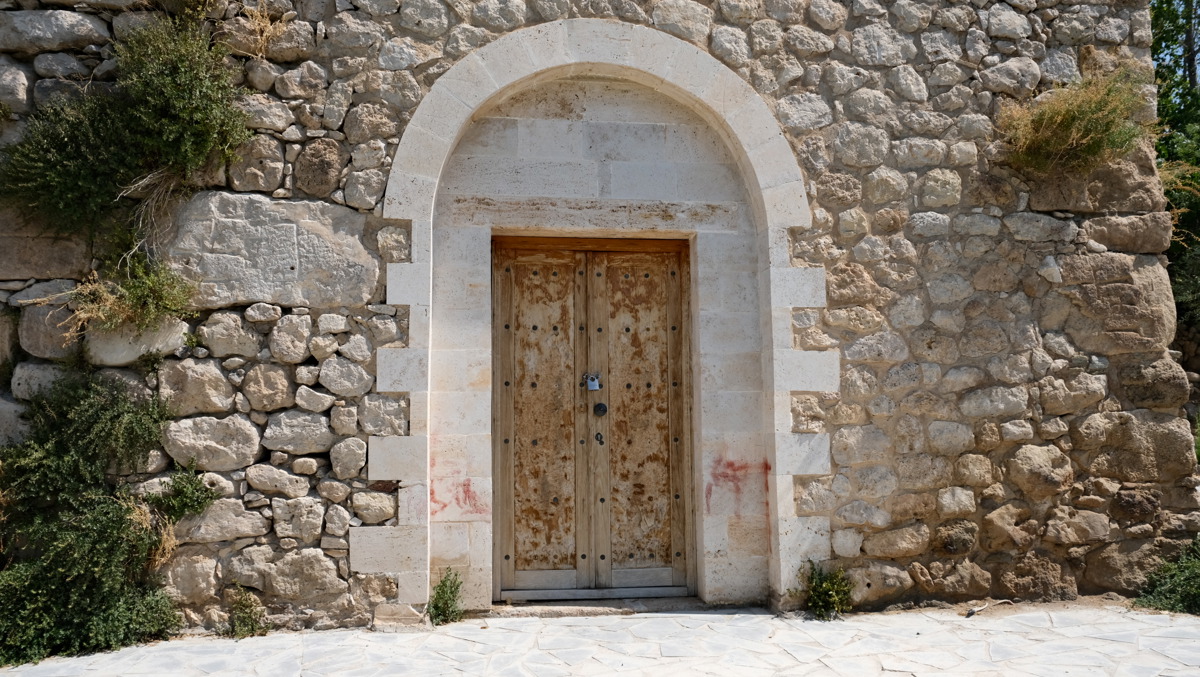
The church overlooks Lake Van and the entire city, and Gevorgyan expressed how painful it was for her to see it in ruins when she first moved to Van. "I used to think, why would it hurt anyone for us to light candles and pray in a place that looks out onto paradise? I worked very hard for this place. Now, there are only a few things left to fix, and then we will have our opening ceremony. This will be the first church to become active again. You can’t imagine how happy this makes me because it means that thousands of Armenians will be able to come here, see Van, and pray in their own language on the land of their ancestors."
‘Lives were turned upside down’
As they stood overlooking Lake Van, Akhtamar Island, and the rest of Van, Gevorgyan reflected on the region's Armenian past. "Before 1915, Armenians lived here. They built houses all around the lake and had various professions. They were rooted here. That hill over there, Seyir Hill, was the hill where Armenian lovers would meet. Sometimes, I watch young people going there now, and I think of the Armenian youths who once fell in love there and dreamt about the future. But then 1915 came, and everything changed. Dreams vanished, and even our roots were uprooted. Thousands of Armenian babies, young people, and the elderly drowned in Lake Van while fleeing. You can imagine what else happened."
‘Was it too much to ask for a handful of soil?’
Gevorgyan remarked that Lake Sevan in Armenia bears a striking resemblance to Lake Van. According to legend, from the peak of Mount Ararat, Lake Sevan and Lake Van appear to be the same distance away.
"One is salty, the other is fresh. But both are blessings. On a clear day, you can see Ararat from anywhere in Yerevan. Whenever we saw Ararat, the conversation would inevitably turn to Van, its nature, and its lake. Just like how Muslims yearn for paradise and God's mercy, we long for Van in the same way," she said, explaining the significance of Van for Armenians.
After moving to Van, Gevorgyan took soil from Akhtamar Island to her parents' graves in Armenia. She said that once people learned she lived in Van, they started asking her for soil from the region. "When we visit somewhere, we often bring back souvenirs. I started bringing back soil from Van, the land of my ancestors.
"Every time I placed soil from Van on an Armenian grave, I could hear my mother's lament: 'Ax lawo lawo, was it too much to ask for a piece of soil from my homeland?'" she recalled, and after saying this, she lit a candle for her mother while softly singing an Armenian song.
‘Every Armenian should come to Akhtamar’
Gevorgyan also called on Armenians to attend the annual service held at Akhtamar Church on Akhtamar Island. She believes that every Armenian should visit their ancestral land and pray there at least once.
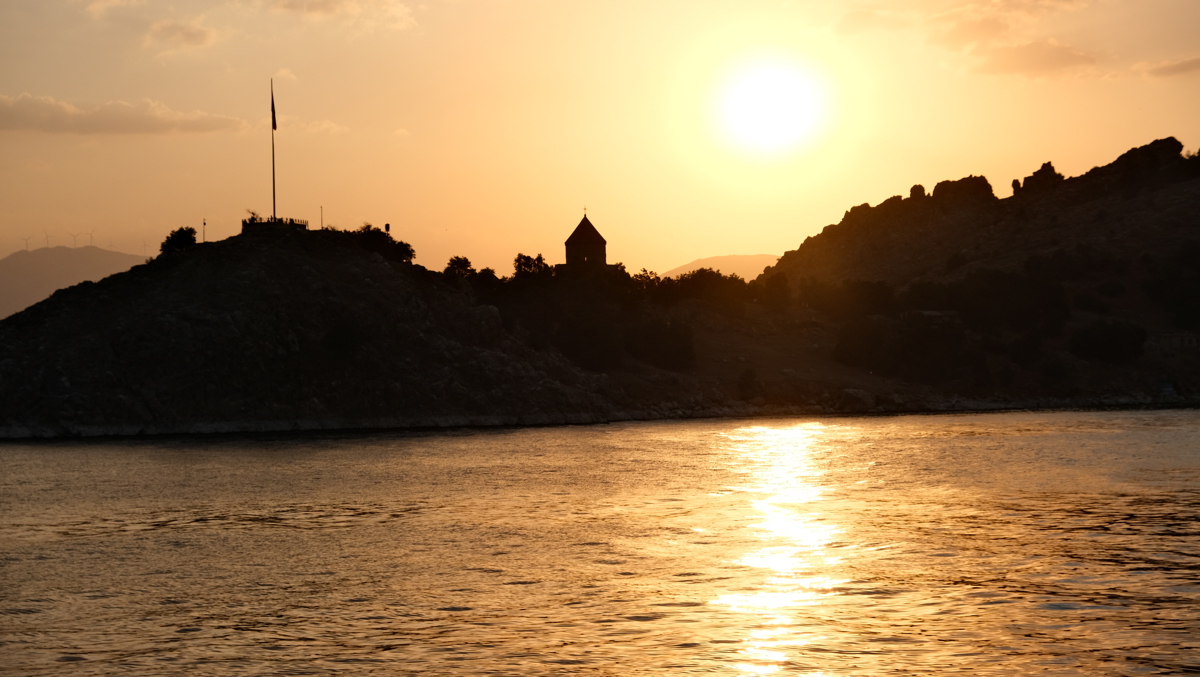
While calling for attendance at the upcoming service, which will take place on September 8, Gevorgyan expressed her frustration that the church only holds services once a year. "It breaks my heart that the candles in this church are only lit once a year, but I fought hard for this.
"We all need to come here to show that Armenians care about their places of worship. Every Armenian, no matter where they are in the world, should visit this place, light a candle at Akhtamar, and pray. We owe this to our ancestors who suffered so much and longed for their homeland."
(ED/VC/VK)




